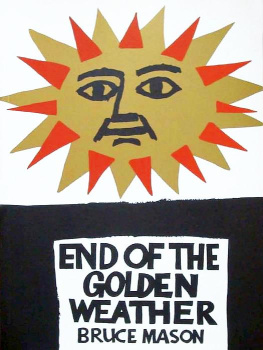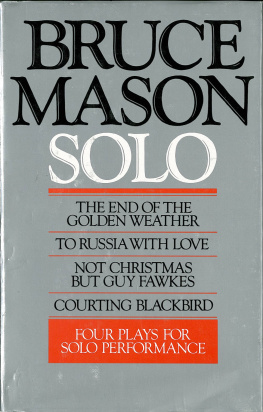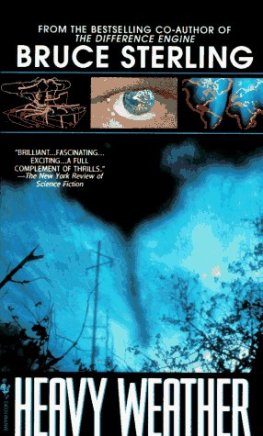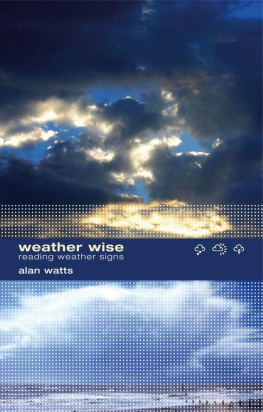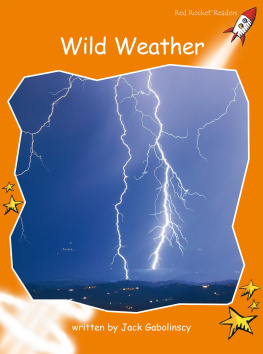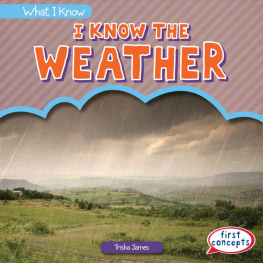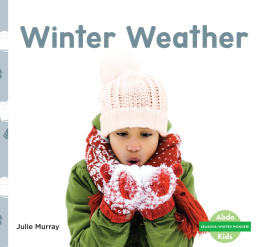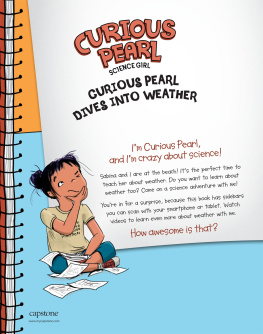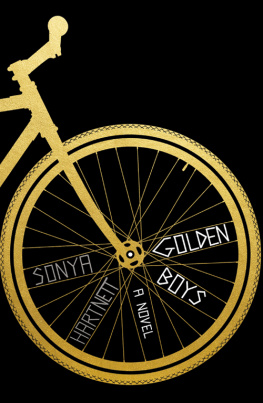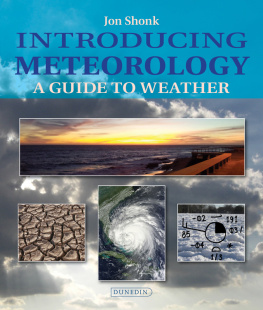In 1959, unable to earn a living as a playwright in a country without a professional theatre, Bruce Mason presented, in fear and trembling, The End of the Golden Weather. Between 1959 and 1978, when illness forced his retirement from the stage, he performed it nearly 1000 times, in theatres, school halls, church halls and community halls throughout New Zealand. The story of a young boy's extraordinary summer on a beach, The End of the Golden Weather has become a part of New Zealand history, a touchstone of New Zealand experience.
The End of the Golden Weather is now a major film.

Bruce Mason is the most significant playwright in New Zealand's theatrical history. Of his more than thirty plays several have become classics, including The Pohutukawa Tree, which has been produced over 100 times around the world. In 1977 he was awarded an Honorary Doctorate of Literature by Victoria University.
In 1980 he was made a CBE-and in 1982 he was given the New Zealand Literary Fund Award for Achievement.
Bruce Mason died in 1983.
VICTORIA UNIVERSITY PRESS
ISBN 0 86473 272 4
The End of the Golden Weather
NEW ZEALAND PLAYSCRIPTS
GENERAL EDITOR: JOHN THOMSON
Glide Time by Roger Hall
Middle Age Spread by Roger Hall
Awatea by Bruce Mason
The Pohutukawa Tree by Bruce Mason
The Two Tigers by Brian McNeill
State of the Play by Roger Hall
Jack Winter's Dream by James K Baxter
Foreskin's Lament by Greg McGee
Bruce Mason Solo (hardcover)
Blood of the Lamb by Bruce Mason
Fifty-Fifty by Roger Hall
Hot Water by Roger Hall
Outside In by Hilary Beaton
The End of the Golden Weather by Bruce Mason
Out in the Cold by Greg McGee
Tooth and Claw by Greg McGee
Shuriken by Vincent O'Sullivan
Objection Overruled by Carolyn Burns
Wednesday to Come by Rene
Driftwoodby Rachel McAlpine
Pass It On by Rene
Coaltown Blues by Mervyn Thompson
The Healing Arch by Bruce Mason
Squatterby Stuart Hoar
The Share Club by Roger Hall
A Red Mole Sketchbook by Alan Brunton
Three Radio Plays
Jones & Jones by Vincent O'Sullivan
The Land of the Moa by George Leitch
Billy by Vincent O'Sullivan
Jeannie Once by Rene
Broken Arseby Bruce Stewart
Daughters of Heaven by Michelanne Forster
Joyful and Triumphant by Robert Lord
Lovelock's Dream Run by David Geary
Verbatim by William Brandt
Nga Tangata Toa by Hone Kouka
Eugenia by Lorae Parry
Ta Matou Mangai / Our Own Voice edited by Hone Kouka
The End
of the Golden
Weather
A voyage into a
New Zealand childhood
by Bruce Mason
Victoria University Press
VICTORIA UNIVERSITY PRESS
Victoria University of Wellington
PO Box 600 Wellington
http://www.vup.vuw.ac.nz
Bruce Mason estate 1962, 1970
ISBN 0 86473 272 4
First published in 1962
This edition revised and reset in 1970
Reprinted 1974, 1981, 1994, 1998
Permission to perform this play must be obtained from Playmarket,
PO Box 9767, Courtenay Place, Wellington, New Zealand.
The publishers acknowledge the assistance and advice
of Playmarket, which was established in 1973 to
provide services for New Zealand playwrights.
This book is copyright. Apart from
any fair dealing for the purpose of private study,
research, criticism or review, as permitted under the
Copyright Act, no part may be reproduced by any
process without the permission of
the publishers
Cover design by Graham Percy
Ebook production 2011 by meBooks
To B.C.
Deer stalker, friend
Note to the second edition
About a year ago, I was invited by the New Zealand Broadcasting Corporation to prepare a television programme to celebrate the 500th performance of The End of the Golden Weather; it reached the screen in another form, and was shown on all channels in the Looking at New Zealand series on Sunday, 14 September, 1969, directed by John Barningham and produced by Bute Hewes. My original TV script gives a fuller account of the experience, and I offer it here, exactly as it was submitted, omitting only technical terms of the TV trade.
AUTHOR can be seen advancing to table and chair; unseen applause. Bow.
AUTHOR. 'I invite you to join me, in a voyage into the past, to that territory of the heart we call childhood. '
Camera recedes, showing AUTHOR mumbling on a TV screen; voice fades to murmur, as he says:
'Consider, if you will, Te Parenga. '
He drones on, behind the montage of press clippings, reviews, the published text, the two record covers. Camera now reveals a studio, the AUTHOR and INTERVIEWER, facing each other.
TITLES : The Golden Weather Odyssey, or Fleecings from the Golden Weather, by Bruce Mason.
INTERVIEWER. The End of the Golden Weather. How many times now?
AUTHOR. I lost count after 500.
INTERVIEWER. Almost a way of life.
AUTHOR. Almost.
INTERVIEWER. You must have asked yourself: will it ever end?
AUTHOR. I still do it: between thirty and fifty performances every year.
INTERVIEWER. And you never tire of it?
AUTHOR. Never. You see I've no aids at all. Table, chair, voice, gesture. Nothing else. So it has to be re-created on the spot, every time. Every audience is different; every audience a new challenge.
INTERVIEWER. And you've taken it everywhere.
AUTHOR. You name it: I've played it.
INTERVIEWER. Blenheim.
AUTHOR. No.
INTERVIEWER. Alexandra.
AUTHOR. No. You've picked the only two. But everywhere else, of any size. Every city, town, village, hamlet, petrol-station, it sometimes seems.
INTERVIEWER. How did it all begin?
AUTHOR. Well, in 1959, I'd come to the end of a road. I'd written a few plays, assembled a mountain of criticism, done some producing. I'd had a crack at all the arts and trades of theatre. But it hadn't got me anywhere.
INTERVIEWER. Where did you want to get?
AUTHOR. I just wanted to feel that I had a calling for theatre and that this calling would at length be recognised, so that I could give my life and best energies to it. But you can't work in a vacuum. A man won't write symphonies, if there's no orchestra to play them. There was no solid theatrical framework here, no ladder to climb so that, feet on the the first rung, you could go upwards to the second. You created no mana, no reputation or authority to justify your work. In fact, to most people, it wasn't work at all, just pretentious frivolity.
INTERVIEWER. What about the New Zealand Players?
AUTHOR. A flash in the pan, alas, though a flash that lasted for seven years.
INTERVIEWER. But didn't you write for them?
AUTHOR. Yes. Sketches and pieces for their Schools' Quartets and one full-length play, which has become my best-known: The Pohutukawa Tree. But at no stage could I consider that this was opening up a career. It was always and only, a spare-time job. Hence the desperation.

